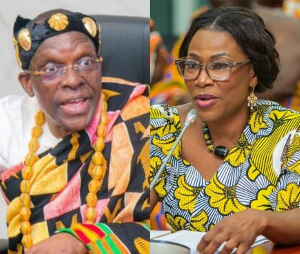Ghana's Free Education And The Political Jigsaw “Memorizing words, texts, and names caused him considerable difficulties. Yet, one regards the pupil’s alleged ‘learning disability’ in the context of his distaste for the teaching style which he experienced as military drill…” Albert Einstein.
It is a rule of thumb that many parents in contemporary Ghana persistently drive their children toward “high achievement” by expecting extra ordinary performances from them term after term. And sincerely, without this push from the same parents who have funded these wards’ education from day one, Ghana could not have produced a single doctor, nurse, lawyer, scientist, farmer, technocrat to transform the socio-economic life of the country. But while celebrating the few brilliant ones, we, as a nation, have totally abandoned the average students or the stragglers/slow learning in our classrooms. Pardon my pessimism, but I am not one bit surprised about the massive ‘bombings’ in the BECE and WASSCE results nationwide.
As Ghana introduced the Free Compulsory Universal Basic Education in (1996) and the Capitation grant policy (2005), way was made for every child to access education in the public school at no cost. But like the Animal Farm classic example of “all animals are equal, but some animals are more equal than others”, I have come to identify that with the standardized way teaching is done in most schools, the plight of students with learning disabilities—Dyslexia, Dyspraxia, Dysgraphia, Dyscalculia, Attention Deficit Disorder and others— is about to get worse.
Dyslexia, according to the British Dyslexia Association (2007), is a specific learning difficulty that mainly affects the development of literacy and language related skills. It is characterised by difficulties with phonological processing, rapid naming, working memory, processing speed, and the automatic development of skills that may not match up to an individual's other cognitive abilities.
Dyslexia, undoubtedly, makes it very difficult for a student to succeed academically in the typical instructional environment. For emphasis sake, I must caution that not every child with a learning disability is dyslexic. Let me update you on some specific challenges that may determine whether an individual is dyslexic or not:
• Difficulty learning to read and/or spell during your early school days.
• Having trouble learning how to read when you were in school.
• Having difficulty learning to tell the time.
• Mixing up left and right or have problems with direction.
• Getting letters, numbers, words back to front or jumbled up.
• Printed material appears to move or is blurry.
• Difficulty remembering the letters of the alphabet, names, telephone numbers, times tables.
• Reading slowly.
• Uncomfortable reading out loud.
• Omitting, transposing, or adding letters when you are reading or writing.
• Having speech difficulties.
• Finding difficulties concentrating and taking in spoken information.
• Having to read something two or three times before it makes sense.
• Avoiding work projects or courses that require extensive reading.
In practical terms, the frustrations of a student with dyslexia is like asking a specialized carpenter who has no training in website designing to suddenly develop a website in just 48 hours; it will not only be impossible for the carpenter but he will be justified to think of the task manager as crazy. With this background given, I assume you will now understand why it is unwise for woefully ignorant teachers to persistently flog some categories of students all in the name of resurrecting their academic performance.
Let’s hear the continuation of the matter. We live in a nation where majority of teachers teach with little emphasis on whether students are listening or learning anything at all. How can we talk about every child having the right to basic education when students do not understand what is being taught talk less asking questions? How can we say every child, rich or poor, able-bodied or disabled, deserves a good education when the teacher’s teaching methodology is designed such that teachers ‘teach’ instead of interact with students in the learning process? How can we propagate the better Ghana Agenda when our educational system thrives on better grades over developing students’ God-given talents or preparing them for the future? We have really misplaced our priorities.
As a matter of fact, our politicians, policy makers, and educationalists haven’t researched much on the where about of all the students who were dismissed from school, repeated a class, dropped out of school or couldn’t further their education because of limited space in schools/financial difficulties.
Coming to the Ghanaian brouhaha about free SHS from where I stand, I think it will be very suicidal to publicize the recent ‘free SHS’ concept when we have not unravel the mystery behind why many parents still send their children to private/expensive schools knowing fair well the public schools enjoy better packages like school feeding programme, Capitation Grant, and free textbooks.
I see no reason why I should be enthused about which politician is promising free SHS or university education, and whether it is feasible or not. My focus is entirely on improving the school curriculum to focuses on each child’s holistic development with support from trained teachers who are motivated with salary, bonuses, educational facilities and better working conditions. In the absence of all these resolutions, our parade for free SHS/ university education will only open the floodgates for our candidates to keep failing while the number of unemployable graduates increases.
Paa Kwesi Forson
cbforson@gmail.com
Opinions of Friday, 28 September 2012
Columnist: Forson, Paa Kwesi
Ghana's Free Education And The Political Jigsaw
Entertainment













